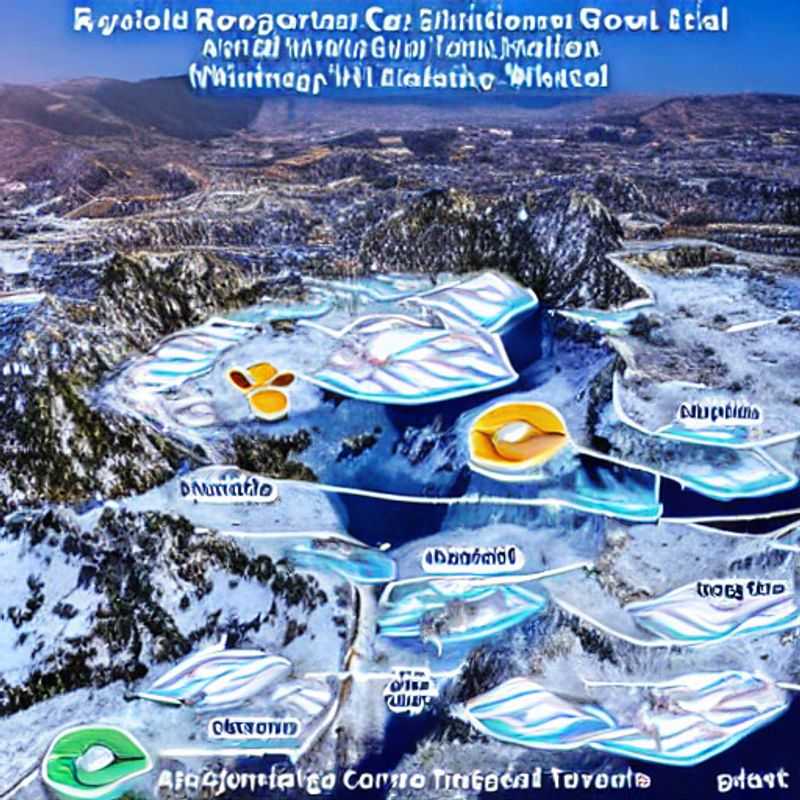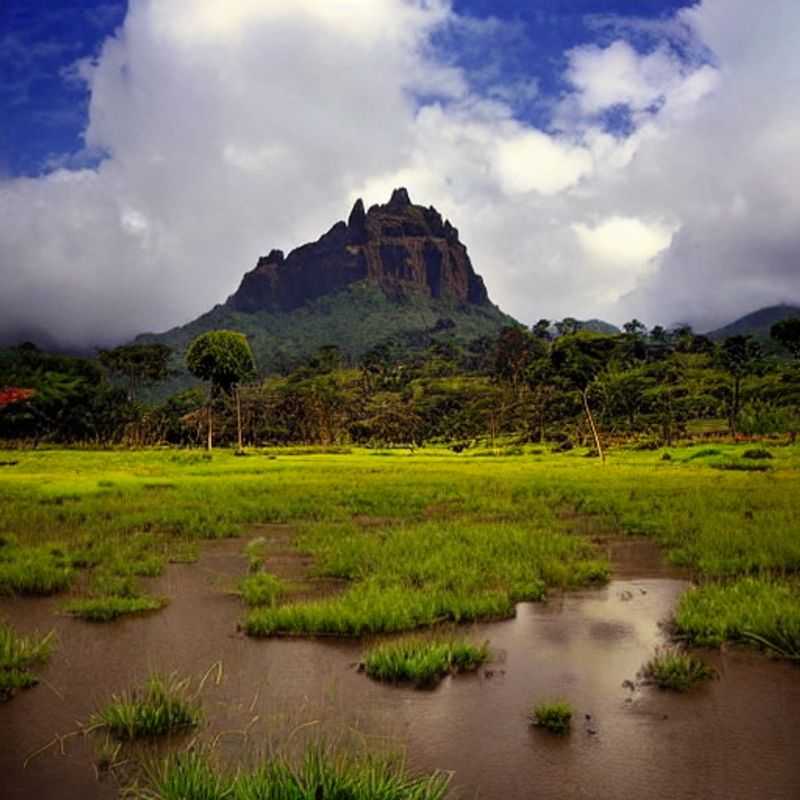Mount Elgon Foodie Paradise: Top 8 Luxury Social Media Spots in Uganda/Kenya

Backpacking Mount Elgon in 2026: Your Essential Guide
Embarking on a backpacking adventure on Mount Elgon in 2026 promises an unforgettable experience, blending breathtaking scenery with unique ecological wonders. Planning is paramount to ensure a safe and rewarding trek. This guide will equip you with the essential knowledge for your 2026 expedition.
First and foremost, understand that Mount Elgon is a dormant volcano straddling the border between Uganda and Kenya, offering diverse trekking routes. Choose your route wisely based on your fitness level and the time you have available. Popular options include the Sasa Trail in Uganda, known for its challenging ascent and dramatic caldera views, and the Suam Trail in Kenya, offering a gentler introduction to the mountain's lower slopes.
Permits and park fees are mandatory and vary depending on the country and the duration of your stay. It's advisable to book these in advance, especially if you plan to travel during peak seasons. For 2026, ensure you have the latest information on permit costs and application procedures by contacting the Uganda Wildlife Authority or the Kenya Wildlife Service respectively.
Accommodation on the mountain typically involves camping or staying in basic park bandas. You'll need to carry all your camping gear, including a sturdy tent, sleeping bag rated for cold temperatures, and cooking equipment. Water sources are generally available, but always carry a reliable water filter or purification tablets. Pack plenty of high-energy snacks to fuel your hikes.
The weather on Mount Elgon can be unpredictable, with rapid changes from sunshine to rain and mist. Layered clothing is key. This includes waterproof and windproof outer layers, warm fleeces, and moisture-wicking base layers. Don't forget sturdy, broken-in hiking boots, a good quality backpack, and a reliable headlamp. A first-aid kit with essential medications is non-negotiable.
For 2026, consider hiring a local guide. They not only possess invaluable knowledge of the terrain and safety precautions but also contribute to the local economy. Guides are often mandatory in certain sections of the park, and their expertise will significantly enhance your experience. Be prepared for potential wildlife sightings, including various bird species, monkeys, and even the elusive leopard.
Finally, respect the environment. Mount Elgon is a delicate ecosystem. Adhere to Leave No Trace principles: pack out everything you pack in, stay on marked trails, and avoid disturbing the flora and fauna. Your responsible backpacking will help preserve this natural wonder for future adventurers.
Mount Elgon's Culinary Canvas: Top Luxury Stays for the Foodie's Social Media Feed (Uganda/Kenya)
Jambo!

You may also like
Mount Elgon's Culinary Delights: A Foodie's Guide to Luxury Social Media Shots
Winter Wonders on Mount Elgon: A Guide for Luxury Travelers
Planning Your Foodie Escape to Mount Elgon: Average Temperatures & Potential Cold Snaps
Snow, Ice, and Sunshine: Navigating Mount Elgon's Winter Conditions
Making the Most of Short Days: Maximizing Your Mount Elgon Winter Itinerary
Luxury Travel in Winter: Accessing Mount Elgon's Charms
Winter's Charm: What's Open & Accessible on Mount Elgon?
Beat the Crowds: Luxury Travel on Mount Elgon During the Off-Season
Budget-Friendly Luxury: Saving Money on Your Mount Elgon Winter Trip
Is a Winter Mount Elgon Escape Right for You? Assessing Your Cold-Weather Tolerance
Jambo! Thinking of a solo culinary adventure to Mount Elgon, straddling Uganda and Kenya, during spring? Fantastic choice! Spring offers a sweet spot – pleasant temperatures, fewer crowds, and potentially lower costs than peak season. Let's explore how to make it a safe, efficient, and authentic experience for the discerning foodie.
Weather and Accessibility: Spring on Mount Elgon boasts comfortable temperatures, generally ranging from 15-25°C (59-77°F) at lower elevations, though nights can get cooler. Snow is highly unlikely, and ice is possible only at the highest peaks. Roads are generally accessible, but 4x4 vehicles are recommended for venturing further into the mountainous regions. Public transport is available in towns but may be less frequent in rural areas. Factor this into your planning for reaching remote villages known for specific foods.
Daylight Hours and Sightseeing: Spring offers ample daylight hours, ideal for exploring the region's diverse landscapes and enjoying hiking. Remember that daylight hours are still shorter than in summer so plan your explorations accordingly. Don't miss the chance to hike to the caldera or explore the various waterfalls, many of which are stunning during spring.
Attraction Availability and Crowd Levels: Most attractions, including national parks and local markets, remain open throughout the year. Spring generally offers a less crowded experience, enhancing the sense of peaceful exploration. You'll enjoy more personal interaction with locals and have easier access to popular spots.
Food and Culture: Mount Elgon is a culinary treasure trove! Expect to find delicious matooke (steamed plantains), posho (cornmeal), and various local vegetables. Engage with local farmers' markets for fresh produce and interact with the communities, learning about their traditional methods of food preparation and preservation. You might encounter traditional dances and music at certain community events, enriching your sensory experience. Sample local brews (always in moderation and responsibly!) to further immerse yourself in the cultural scene.
Cost Considerations: A budget of $50-$100 per day should cover accommodation (guesthouses or homestays), food (including local eateries), transport (mix of public and private depending on your planned activities), and entrance fees to attractions. This estimation assumes that you will not stay in luxury hotels and will be open to eating in local food stalls and not restaurants.
Sample Itinerary and Costs (7 Days):
Day 1-3: Explore the Ugandan side, visiting Sipi Falls (entrance fees approx. $10 per location), hiking and enjoying the local coffee culture, staying in a guesthouse ($20/night). Food: $15/day.
Day 4-5: Travel to the Kenyan side (transport approximately $50), hike to Chepkitale, and explore local markets. Stay in a basic lodge ($30/night). Food: $15/day.
Day 6-7: Visit local villages, perhaps participate in a cooking class or interact with communities in their traditions and then return to your starting point. Food: $15/day.
Total Estimated Cost (excluding international flights):$700 - $1000. (This is a rough estimate and can vary based on your choices and spending habits.)
Safety Tips: Inform someone of your itinerary. Use reputable transportation. Be mindful of your belongings. Respect local customs and traditions. Learn a few basic Swahili or Luganda phrases—it will enhance your interactions with locals.
Remember, this is a suggested itinerary. Tailor it to your interests, and always prioritize safety and cultural sensitivity. Enjoy your incredible journey!

Mount Elgon Solo Travel 2026: Your Essential Guide
Planning a solo adventure to Mount Elgon in 2026? This majestic mountain straddling the border of Uganda and Kenya offers a unique and rewarding experience for the independent traveler. Key preparations are crucial for a safe and enjoyable journey.
Before you go, ensure you have a valid visa and all necessary travel documents. Research the best time to visit; the dry seasons, typically from June to August and December to February, offer more stable weather for trekking.
For solo travelers, safety is paramount. While Mount Elgon is generally safe, it's wise to inform someone of your itinerary and expected return date. Consider hiring a local guide; they not only enhance your understanding of the flora, fauna, and local culture but also provide an extra layer of security and invaluable local knowledge.
When it comes to accommodation, options range from basic campsites to more comfortable lodges. Book your accommodation in advance, especially during peak seasons, to avoid disappointment. Solo travelers might find lodges a good place to meet other trekkers and share experiences.
The trekking routes vary in difficulty, from gentle walks to challenging multi-day climbs. Choose a route that matches your fitness level and experience. Always pack appropriate gear, including sturdy hiking boots, warm clothing, rain protection, and a comprehensive first-aid kit. Hydration is key, so carry plenty of water or purification methods.
Connectivity can be spotty on the mountain, so download offline maps and essential information before you depart. Embrace the tranquility and the opportunity for self-reflection that solo travel on Mount Elgon provides. Be respectful of the local culture and environment, and leave no trace behind.